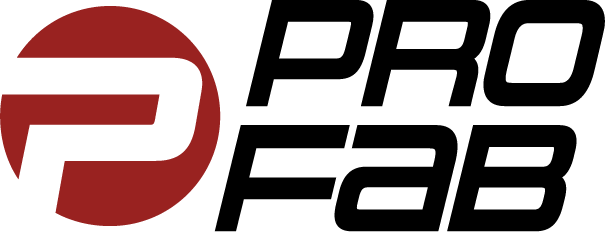
Blog
Prioritizing Sanitary Conveyance in Pet Food Manufacturing
The pet food industry is trending towards healthier and more natural options. Pet owners increasingly opt for foods that prioritize quality ingredients and nutritional value for their pets. This change is driving higher demand for increased sanitation and food safety.
However, older equipment often fails to meet these stricter requirements. As a result, many manufacturers struggle with maintaining the necessary hygiene levels and efficiency in their production lines. This can lead to devastating consequences and damage to a brand’s reputation.
Read on to learn more about maximizing sanitation in pet food conveyance.
INCREASING SANITATION STANDARDS IN MODERN PET FOOD PRODUCTION
Pet food manufacturers must maintain strict sanitation standards throughout their conveyor systems to protect pet health and safety. The industry’s move to higher quality products, including fresh food and baked treats, has dictated new benchmarks for equipment cleanliness and maintenance.
Conveyor systems play a critical role in maintaining these sanitation standards, from ingredient handling through packaging. Proper cleaning between production runs helps prevent cross-contamination and ensures consistent product quality. This level of control requires equipment specifically designed to support thorough sanitization while maintaining efficient operations.
RAW PET FOOD BRINGS NEW CHALLENGES
The explosive growth in raw and fresh pet food brings unprecedented sanitation challenges to manufacturers. For example, dry kibble often utilizes ‘kill steps’ like baking or extrusion. These high-temperature processes eliminate bacteria and create a safety barrier. Stricter sanitation is necessary for fresh food due to the absence of these bacterial elimination stages.
The constant presence of moisture creates an ideal environment for bacterial growth, fundamentally changing sanitation protocols. Production lines need the ability to handle raw ingredients with surgical precision, as any contamination can quickly spread throughout the entire system. This reality demands more frequent cleaning cycles and thorough validation between production runs.
These challenges extend beyond basic sanitation. Manufacturers must implement comprehensive monitoring systems with multiple checkpoints throughout the production process. Real-time contamination detection becomes essential, as does the ability to quickly isolate and address any issues before they impact product safety.
PFI’S PROVEN CLEAN-BY-DESIGN SOLUTIONS
At PFI, clean design isn’t just a feature – it’s fundamental to every system we build. We bring decades of proven sanitary design principles from meat processing to the pet food industry. Our conveyance solutions blend advanced engineering with practical cleanability.
Our default design follows Ready-to-Eat (RTE) design standards. These rigorous criteria now set the benchmark across the pet food industry. Manufacturers are increasingly adopting this plant-wide to ensure consistent food safety and standardization.
Frame Design That Fights Contamination
Open-frame architecture is crucial for raw pet food production, where moisture challenges require superior drainage and airflow. Traditional systems use hollow tubing and horizontal surfaces where bacteria can grow.
Our design eliminates these risks by removing enclosed spots and contact surfaces. These sanitary features of our pet food conveyance equipment help to ensure proper cleaning in high-moisture environments. This standardized approach saves time and money through faster cleaning and inspection
The system eliminates traditional cleaning obstacles. Every surface is accessible, visible, and cleanable – no tools are required. It delivers:
- Complete visual inspection from any angle
- Superior airflow for faster drying times
- Streamlined maintenance access
- Reduced cleaning time and labor costs
Purpose-Built Conveyor Solutions
Different products require unique handling solutions, especially in the evolving pet food industry. To address these needs, we provide a range of specialized conveyor systems, including conveyor belts, horizontal motion conveyors, and dumpers. Recently, we’ve expanded our offerings to include advanced augers and vibratory conveyors—innovative solutions designed to meet the shifting demands of pet food manufacturing.
- Moves raw product quickly to prevent bacterial growth
- Built-in metal detection capabilities
- Optimal for high-volume transfers to processing
- Temperature-controlled product movement
- Sanitary welds and smooth surfaces throughout
- Gentle product handling to maintain quality of fragile products like dog treats
- Minimal moving parts for maximum cleanability
- Self-draining surfaces to prevent moisture accumulation
- Easy-access design for thorough sanitization
How to Improve Sanitation in Pet Food Conveyance
![]()
Our systems go beyond basic cleanability with optional and standard features that help manufacturers meet evolving sanitation demands:
Belt scraper—Cleans the residue off the belt so it doesn’t get stuck over long periods, where it could begin to grow contaminants. It also helps eliminate waste and improve uptime.
Spray bars/CIP systems—Washes the machine while in operation, eliminates residue (repeat of above), and reduces downtime for sanitation since it’s consistently cleaner.
Open frame design—Eliminates hard-to-reach or inaccessible areas where bacteria can grow over time, making cleaning and validation faster and easier.
RTE design standards—Started as the meat industry standard and was then adopted by many other industries. There’s been a shift in bakery, snacks, pet food, and other industries, with all equipment being moved to this standard throughout the processing plant.
This is primarily due to food safety risks and the desire for standardized equipment.
Each feature of our equipment is designed with one goal: keeping your production lines cleaner, longer, and with less effort. This means you spend less time cleaning and more time producing.
SETTING THE STANDARD IN SANITARY PET FOOD CONVEYANCE
At PFI, we manufacture the best sanitary pet food conveyance equipment. Over the decades, we’ve transformed pet food conveyance by integrating sanitary design into every weld, surface, and component we manufacture.
Our engineering team has solved complex conveyance challenges across the pet food industry. We’ve helped manufacturers pivot to fresh food production, scale traditional kibble operations, and launch fresh food lines – all while maintaining the highest sanitary standards.
Pet food manufacturers across North America trust PFI for fast lead times, a versatile product mix, and comprehensive support. Elevate your production process with purpose-built conveyance systems that maximize sanitation, protect your brand reputation, and improve operational efficiency. Click below to learn how we can transform your pet food manufacturing.
Quicklinks
© 2024 PFI. ALL RIGHTS RESERVED. | Privacy Policy | Terms and Conditions



